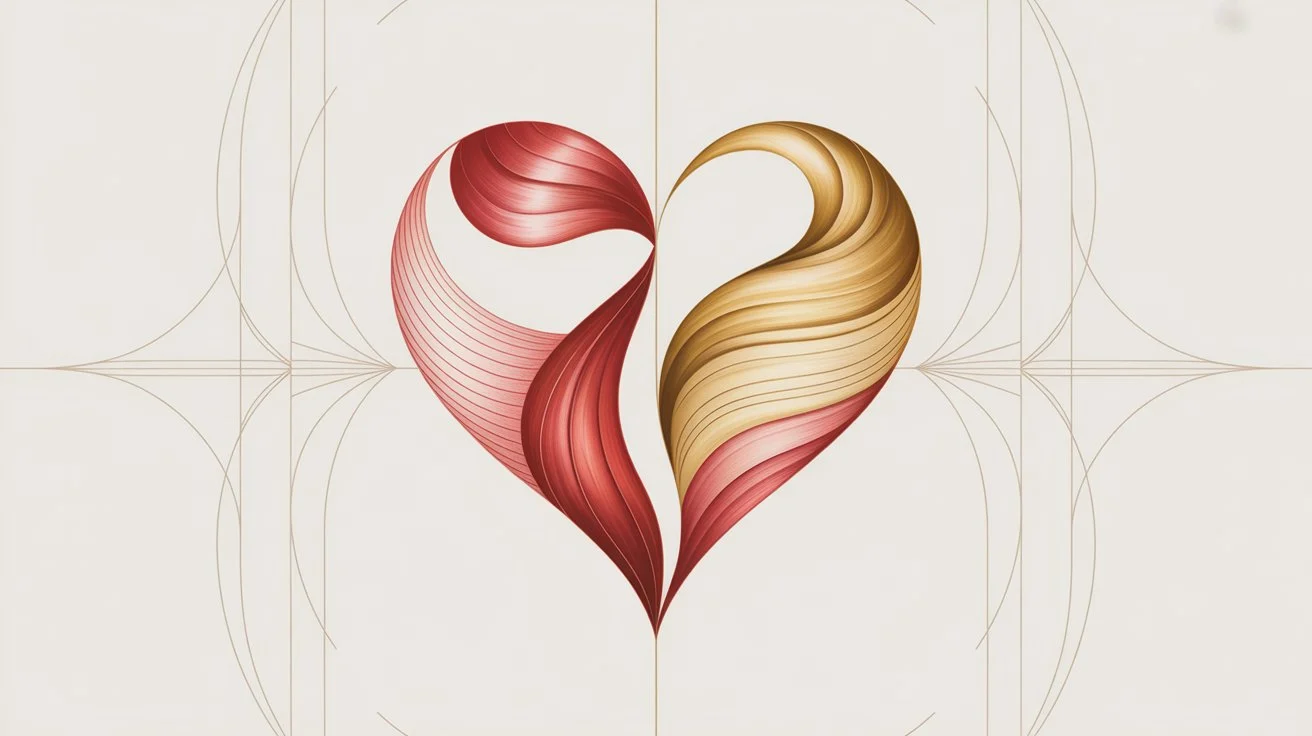Ever felt an intense attraction that seems to take over your thoughts — even if you barely know the person? 💭
In daily conversations, social media captions, and even dating apps, “lust” pops up everywhere — but what does it really mean?
Many people confuse lust with love, yet the two couldn’t be more different.
Understanding the meaning of “lust” helps you recognize emotions, set healthy boundaries, and interpret what others mean when they use the word in different contexts.
Let’s uncover what this powerful, passionate term truly represents.
🧠 Definition & Meaning
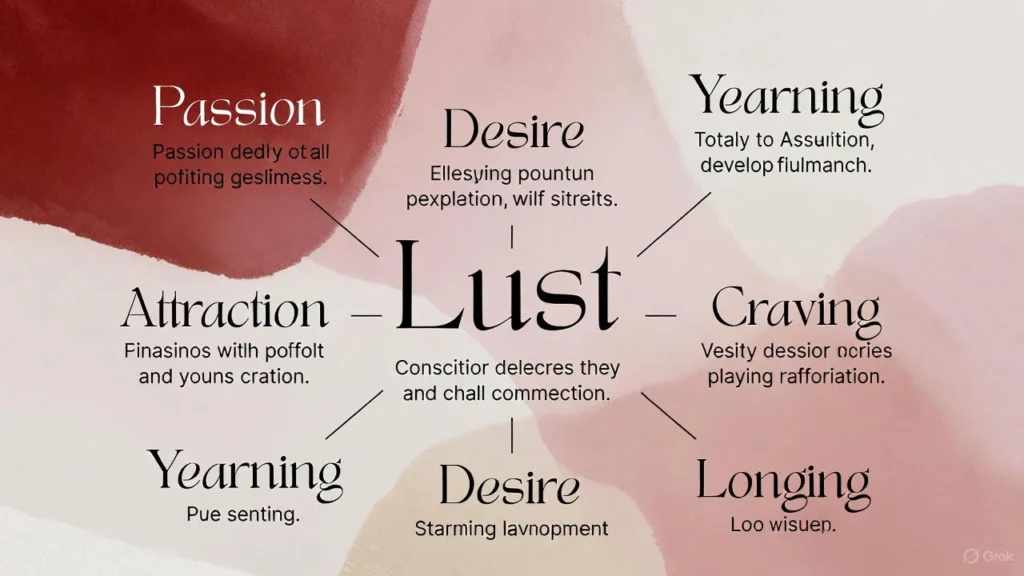
Lust refers to a strong, intense desire or craving, most often of a sexual nature. It’s an emotion driven by physical attraction and passion, not necessarily emotional connection.
In simple words: Lust is when someone feels a powerful desire for another person’s body rather than their personality or soul.
Example (Conversation):
A: “Do you think he loves her?”
B: “Not sure, looks more like lust than love.”
Quick Definition Table
| Context | Meaning | Emotion Type | Example |
|---|---|---|---|
| Romantic | Physical attraction without emotional depth | Passionate | “It’s not love, it’s pure lust.” |
| General | Strong craving for something | Desire | “He had a lust for adventure.” |
📜 Background & Origin
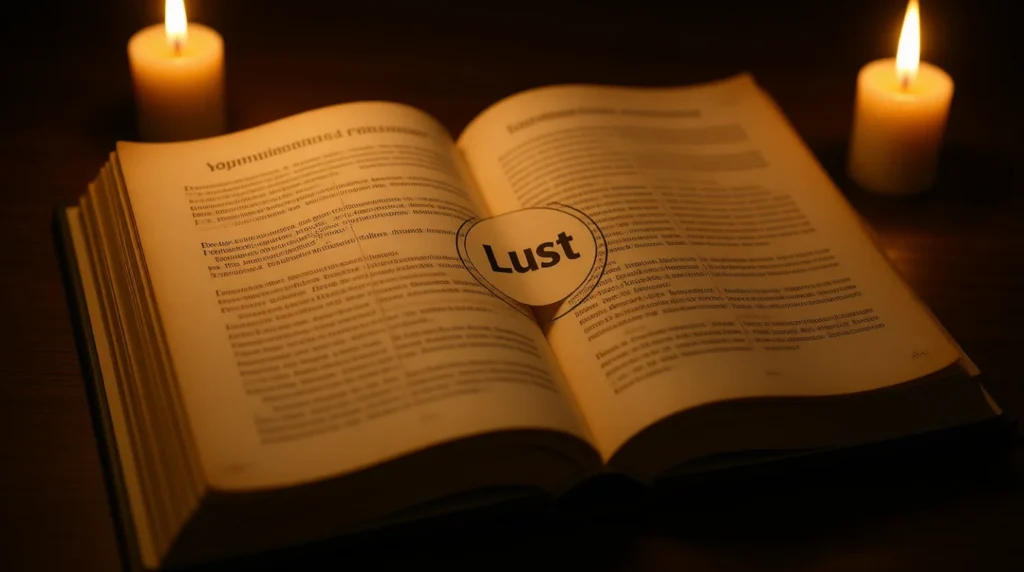
The term “lust” comes from Old English lust meaning desire, pleasure, or delight.
Originally, it wasn’t negative — it simply meant any strong desire. Over centuries, especially through religious and moral teachings, it became associated with sexual temptation and sin.
Today, “lust” carries layered meanings — from harmless attraction to overpowering obsession. In pop culture, movies and songs often use it to portray passionate desire or fleeting romance.
💬 Usage in Various Contexts

- In Texting or Online:
“Can’t stop thinking about him — pure lust 😅.” - In Literature:
Writers use it to describe raw emotion and temptation. - In Religion:
Often seen as a moral challenge — a desire that should be controlled. - In Everyday Talk:
“She’s got a lust for life.” → meaning excitement and hunger for experience.
⚖️ Lust vs. Love — Key Differences
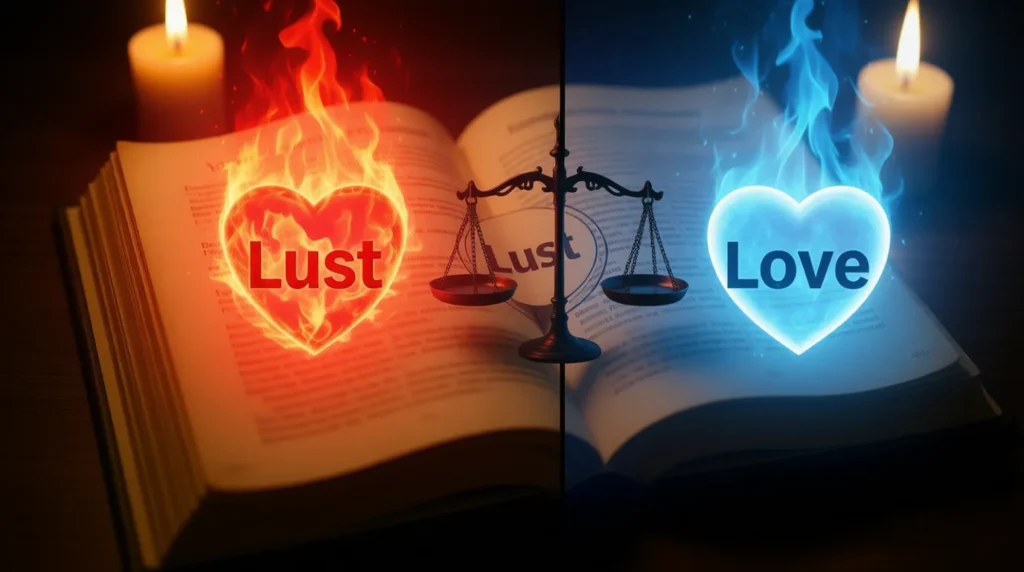
| Feature | Lust | Love |
|---|---|---|
| Duration | Short-term, intense | Long-term, deep |
| Focus | Physical attraction | Emotional connection |
| Motivation | Desire and fantasy | Care and understanding |
| Control | Impulsive | Balanced |
| Outcome | Often fades | Grows stronger |
Understanding this difference helps in relationships — knowing whether your feelings are physical, emotional, or both.
💡 Common Misconceptions
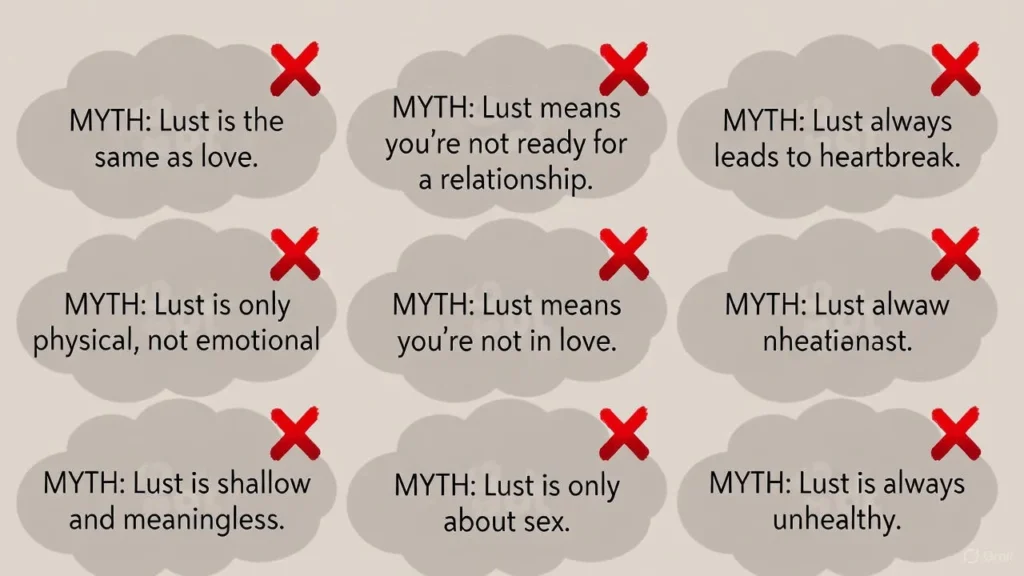
❌ “Lust is always bad.”
Not true — lust is a natural human feeling. The problem arises only when it overrides respect or consent.
❌ “Lust means love.”
Lust may lead to love, but they aren’t the same. Love involves emotional intimacy and trust.
❌ “Lust only means sexual desire.”
It can also mean passion for life, art, or adventure.
🌎 Cultural & Religious Views
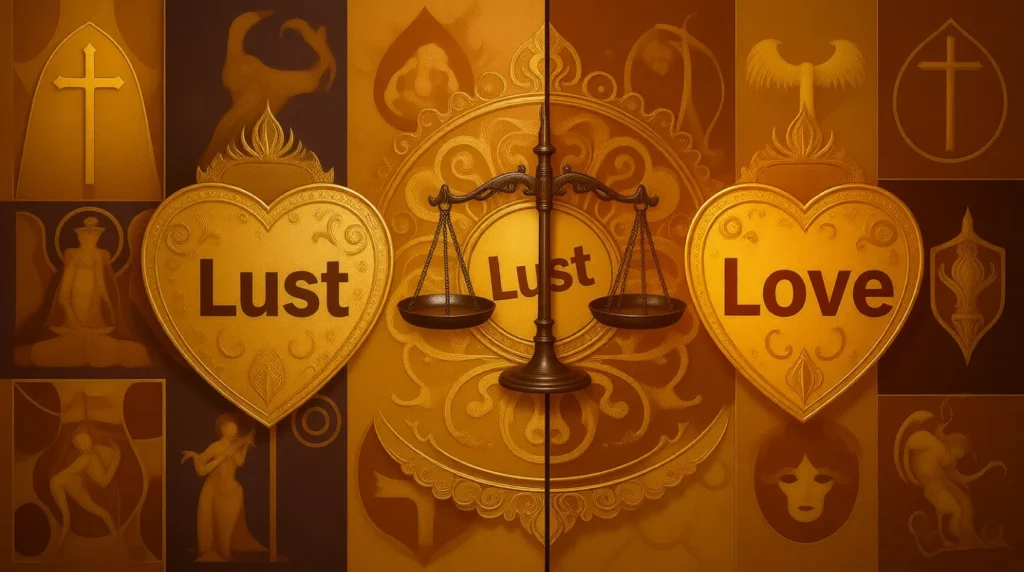
- Christianity views lust as one of the seven deadly sins — warning against excess desire.
- Buddhism sees lust as an attachment that causes suffering.
- Modern culture often reclaims it as empowerment — expressing confidence and passion.
Thus, meaning shifts based on values and context.
🧩 Similar Terms & Alternatives
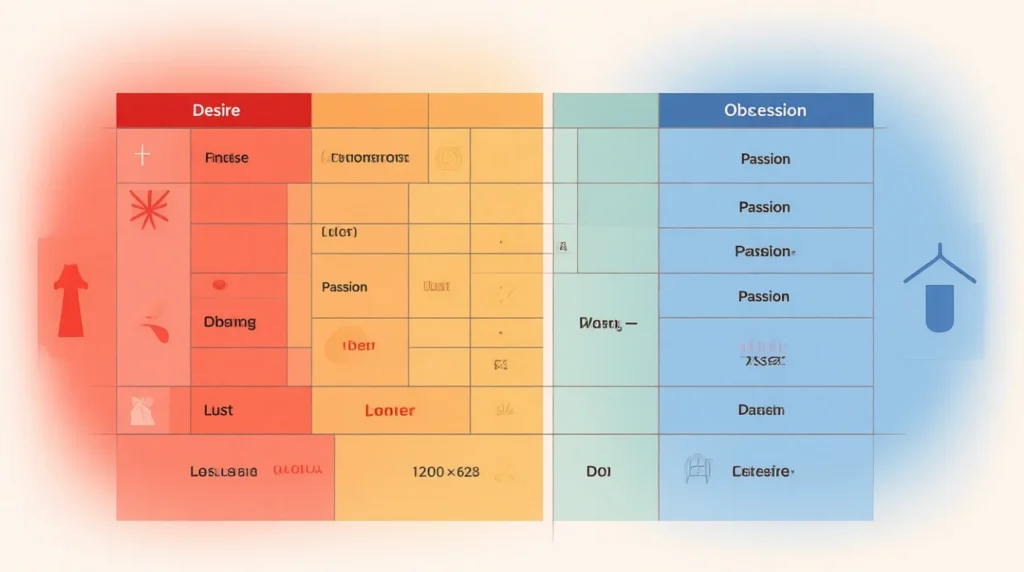
| Term | Meaning | Use Case |
|---|---|---|
| Desire | Strong wish for something | Broad term for want or craving |
| Infatuation | Temporary passion or admiration | Early-stage romantic attraction |
| Passion | Powerful emotion or enthusiasm | Can be romantic or creative |
| Obsession | Uncontrollable fixation | Usually negative or extreme |
🗣️ How to Respond or Use It
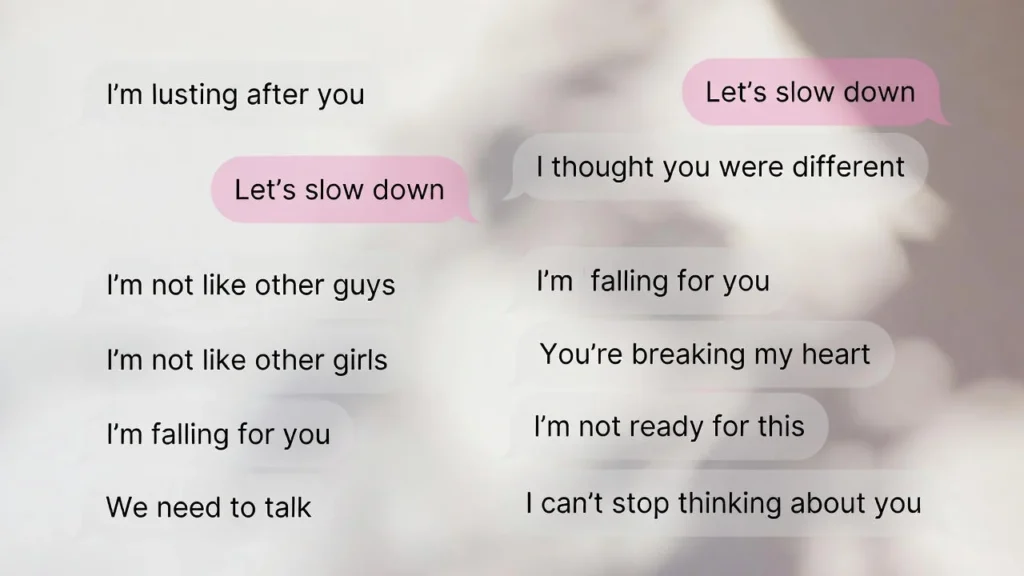
If someone says “I’m lusting after you,” it usually means strong attraction — not necessarily emotional commitment.
Possible responses:
- Playful: “Can’t blame you 😉”
- Serious: “Let’s take it slow.”
- Professional (if uncomfortable): “Let’s keep this respectful.”
Tone and context determine whether it’s flirtatious or inappropriate.
🚫 Hidden or Offensive Meanings
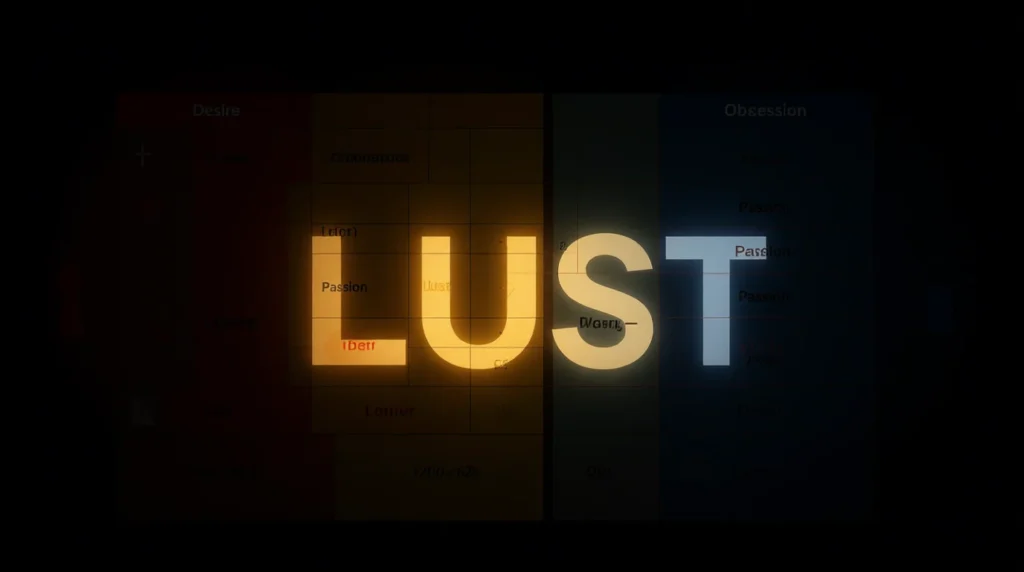
“Lust” itself isn’t a curse word, but using it in objectifying or disrespectful ways can be offensive.
Online, it can sometimes appear in NSFW (Not Safe For Work) contexts, so it’s best to use it thoughtfully.
🏢 Suitability for Professional Communication

Avoid using “lust” in workplace chats or formal emails — it’s too emotionally charged.
Instead, use words like:
- Admire
- Appreciate
- Value
These convey positive intent without crossing professional boundaries.
❓ FAQs
1. What does lust mean in simple words?
→ A strong desire, usually physical attraction.
2. Can lust turn into love?
→ Yes, sometimes it evolves when emotional connection develops.
3. Is lust a sin?
→ In some religions, yes — but it’s also viewed as a natural human feeling.
4. What’s the opposite of lust?
→ Purity, detachment, or genuine love.
5. Can you feel lust without love?
→ Absolutely — lust often starts without emotional depth.
🌺 Conclusion
Lust is one of the most powerful emotions humans experience — raw, passionate, and deeply human.
While it can spark chemistry, it’s vital to balance it with respect, boundaries, and self-awareness.
If you view it as temptation or natural desire, understanding lust helps you navigate emotions, relationships, and even your own self-control. ❤️

